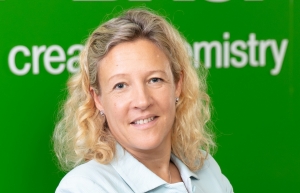BASF Vietnam: creating chemistry for a sustainable country
Last year BASF, which established representation in Vietnam in 1994 and created BASF Vietnam Ltd., in 2009, hit revenues of approximately $341 million nationwide. The group’s sustainable development strategies in Vietnam significantly contributed to the result.
 |
| BASF Vietnam: creating chemistry for a sustainable country |
Since 1990, the German chemical company has almost halved its carbon emissions while simultaneously doubling sales product volumes worldwide.
The company targets to reduce absolute CO2 emissions by one-quarter of 2018 levels by 2030, and will invest up to $4 billion to this end. BASF also aims to achieve net-zero emissions from production sites and energy usage by 2050.
“BASF actively addresses sustainability issues with targets and programmes worldwide. In Vietnam, our roadmap involves the two major pillars of the circular economy and low carbon solutions to help our customers to accelerate circularity, reduce waste and pollution, and offer sustainable products to both the domestic and export markets,” said Erick Contreras, managing director of BASF Vietnam.
Through several innovations, many BASF products are created to support other companies and their customers to reach their climate targets. For example, Elastopir, a new generation of high-performance thermal insulation material, not only offers safety and energy efficiency for the construction of buildings but also helps to lower CO2 emissions and protect the ozone layer by using Blowing Agent Pentane to replace 141b, which has been phased out in many countries, including Vietnam.
Meanwhile, BASF’s engineering plastics Ultramid® can be used to replace 15 different steel parts to build cars, making them about 30 per cent lighter and therefore using less fuel and resulting in fewer emissions.
Furthermore, BASF value materials are reusable, recyclable, and renewable. For example, plastic additive Tinuvin® NOR® extends greenhouse film durability when used to maintain uniform temperatures, humidity, and the right conditions for pollinating insects, and so reduces plastic waste.
Meanwhile, the IrgaCycleTM product series launched in 2021 helps customers avoid certain quality problems in mechanically recycled plastics, which means that recycled plastics can also be used for higher-value applications and recycled content can be increased in the manufacture of new products.
Ingredients including rambutan or argan oil can help cosmetics companies offer more sustainable products for responsible beauty conscious consumers. BASF also offer battery materials for e-vehicles and coating solutions that provide long-lasting protection from extreme weathering impacts for wind turbines, supporting in the country’s acceleration to e-mobility and renewable energy development.
A long journey
According to Contreras, sustainability is a long journey that needs many factors to be successful: a clear strategy, policy, technology, and education – and especially a “learning by doing” spirit. Through its focus on the circular economy and low carbon solutions, BASF Vietnam is driving implementation through its customers, partners, and employees.
The company is raising awareness among stakeholders through different channels such as social media and community programmes. It also actively engages with customers and partners through a Sustainability Day series, while working with business associations and local authorities to share their input and experience through forums and panel discussions to support regulation mapping.
One of the important factors in driving sustainability is to change perception of local community and for that, BASF Vietnam has taken a number of initiatives.
“Raising awareness and cultivating a habit of reduce-reuse-recycle or responsible use of natural resources among the next generation is crucial and we have been proudly contributing our great deal to the country’s efforts,” said Contreras.
In its flagship school renovation programme since 2015 in needy areas of Vietnam, low odour paint products using BASF raw material have been used to offer students a healthier learning environment. Moreover, fun-filled interactive education programme BASF Kids’ Lab and BASF Virtual Lab both offer a plastic sorting experiment to let the young generation learn about this important first step in plastic recycling and how it can contribute to circularity.
In November, BASF Vietnam launched its sixth public playground in Vietnam. Made from natural materials like wood, ropes, and reusable materials like old tyres, the site in District 12 of Ho Chi Minh City brings the concept of low carbon playgrounds to life. It will help to promote the habit of giving a second life to old items and promote the use of low CO2 materials, while offering the children in the area a great outdoor place to interact, play, and develop multiple skills.
“Creating chemistry for a sustainable future is our long-term strategy in Vietnam. We will continuously offer sustainable products that help to improve safety and health for people, minimise waste and CO2 emissions into the environment, accelerate the circular economy, and improve quality of life in general,” Contreras explained.
 | BASF's route towards a circular economy German multinational chemical company BASF is targeting a sustainable future. Dr. Carola Richter, president in Asia-Pacific (excluding China) for BASF, shared with VIR’s Bich Ngoc methods for this goal. |
What the stars mean:
★ Poor ★ ★ Promising ★★★ Good ★★★★ Very good ★★★★★ Exceptional
Related Contents
Latest News
More News
- State corporations poised to drive 2026 growth (February 03, 2026 | 13:58)
- Why high-tech talent will define Vietnam’s growth (February 02, 2026 | 10:47)
- FMCG resilience amid varying storms (February 02, 2026 | 10:00)
- Customs reforms strengthen business confidence, support trade growth (February 01, 2026 | 08:20)
- Vietnam and US to launch sixth trade negotiation round (January 30, 2026 | 15:19)
- Digital publishing emerges as key growth driver in Vietnam (January 30, 2026 | 10:59)
- EVN signs key contract for Tri An hydropower expansion (January 30, 2026 | 10:57)
- Vietnam to lead trade growth in ASEAN (January 29, 2026 | 15:08)
- Carlsberg Vietnam delivers Lunar New Year support in central region (January 28, 2026 | 17:19)
- TikTok penalised $35,000 in Vietnam for consumer protection violations (January 28, 2026 | 17:15)

 Tag:
Tag:




















 Mobile Version
Mobile Version